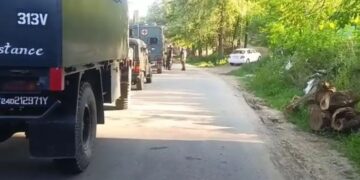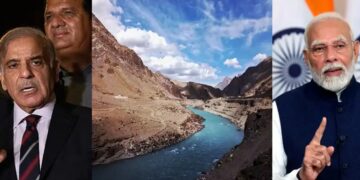In Ladakh, a region nestled amidst the towering Himalayas, a fervent call for constitutional measures to protect its land, culture, and environment has arisen. Spearheaded by environmentalist and educationist Sonam Wangchuk, several groups are demanding constitutional provisions to safeguard Ladakh from what they perceive as external control and potential ecological disaster. Wangchuk, currently on a 21-day fast braving subzero temperatures, is leading the charge, urging for attention to Ladakh’s unique ecological landscape and the promises made but unfulfilled by the government.
Wangchuk highlights the disconnect between decision-makers and the ecological nuances of Ladakh, emphasizing the potential irreversible damage such mismanagement could cause. Wangchuk stresses that Ladakh’s fate shouldn’t mirror the ecological crises witnessed in other Himalayan states like Uttarakhand, Himachal Pradesh, and Sikkim.
The primary demand put forth by Wangchuk and his allies is the inclusion of Ladakh in the Sixth Schedule of the Constitution. This move aims to grant Ladakhis significant autonomy in local governance, akin to provisions existing for tribal areas in states like Assam, Meghalaya, Tripura, and Mizoram. Despite attaining Union Territory status in 2019, the absence of legislative powers and constitutional protections has left Ladakh vulnerable, asserts Wangchuk.
Ladakh’s ecological significance cannot be overstated, with over 90% of Bharat’s trans-Himalayan bio-geographical zone situated within its borders. The region hosts a plethora of endangered species crucial for ecosystem balance and indigenous communities’ sustenance. However, proposed projects threatening land and wildlife in the area have alarmed environmentalists. Large-scale tourism, corporate interests, and infrastructural projects pose risks of irreversible ecological damage, endangering not only Ladakh’s delicate ecosystem but also the livelihoods of millions dependent on its resources.
Wangchuk’s protest garners support from various quarters, including renowned environmentalists like Medha Patkar and Ashish Kothari. The relay fast planned after Wangchuk’s 21-day endeavor signifies a unified front in the fight to preserve Ladakh’s identity and environment. The urgency to address Ladakh’s constitutional status and enact safeguards against exploitative development practices resonates strongly among locals and activists alike.
As Sonam Wangchuk’s impassioned plea reverberates through Ladakh’s valleys, the quest for constitutional protections gains momentum. Ladakh’s struggle for autonomy and ecological preservation underscores the broader imperative of balancing development with environmental conservation. The outcome of this movement holds significance not just for Ladakh but for Bharat’s collective conscience in safeguarding its ecological treasures.

















Comments